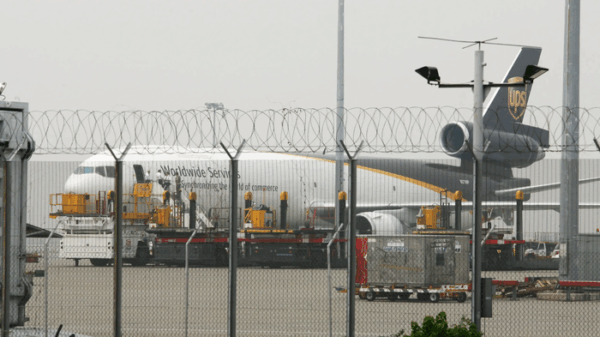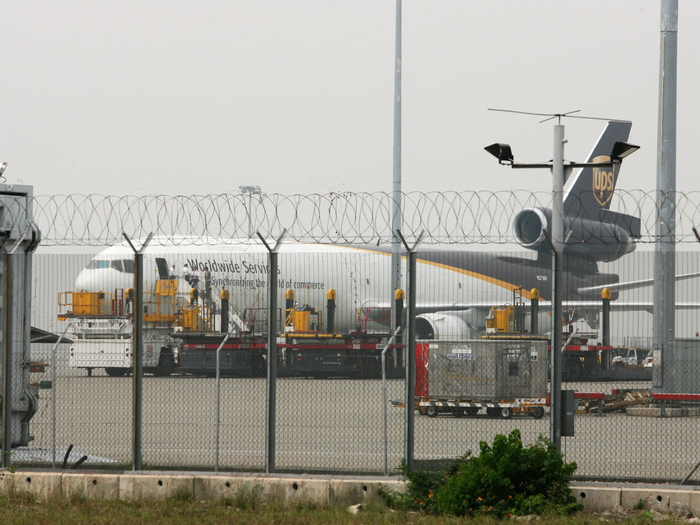BREAKING: A preliminary report by the National Transportation Safety Board (NTSB) reveals alarming findings in the crash of a UPS cargo plane in Louisville, Kentucky, that resulted in 14 fatalities earlier this month. Investigators confirmed that metal fatigue caused the engine to detach from the aircraft during takeoff, leading to a catastrophic incident.
The report, released on October 12, 2023, details frame-by-frame images showing the moment the engine broke away and struck the fuselage of the Honolulu-bound MD-11. The NTSB’s investigation has identified significant metal fatigue and overstress failures in the hardware that connected the left engine to the wing.
Onboard the flight were three crew members, all of whom perished, alongside 11 individuals on the ground, with an additional 23 people injured in the aftermath. The crash occurred near Muhammad Ali International Airport, leaving a devastating trail of destruction through an industrial area, as evidenced by satellite imagery shared in the report.
The NTSB report highlights that the aircraft initially ascended to approximately 30 feet above ground before its landing gear struck the roof of a UPS warehouse. It subsequently crashed into a storage yard and two other buildings, including a petroleum recycling facility, ultimately being mostly consumed by fire.
In response to this tragedy, the Federal Aviation Administration (FAA) has grounded the entire MD-11 fleet, which is utilized by both UPS and competitor FedEx. This grounding is part of a precautionary measure while the investigation continues.
Metal fatigue-related crashes are rare; however, the report draws a chilling parallel to the 1979 American Airlines Flight 191 disaster, where a similar engine failure resulted in the loss of 273 lives. More recently, incidents like Southwest Airlines Flight 1380 in 2018 and a separate Southwest flight in 2016 also highlighted the dangers of metal fatigue in aircraft engines.
As the NTSB continues its investigation into UPS Flight 2976, officials emphasize the need for rigorous safety protocols in the aviation industry. The findings underscore an urgent call for enhanced inspections and maintenance practices to prevent future tragedies.
Stay tuned for further updates as this critical investigation unfolds. The NTSB is expected to release more findings in the coming weeks, and the implications for air cargo safety will be closely monitored by aviation experts and authorities worldwide.


































































